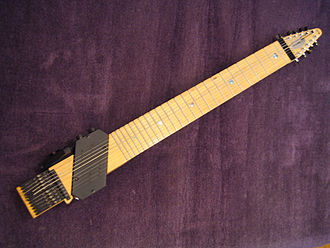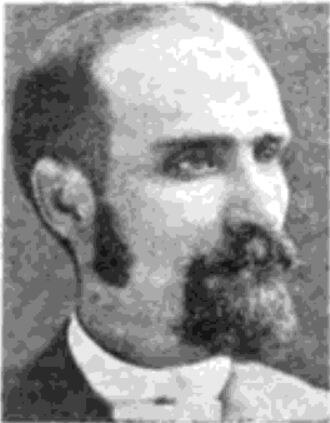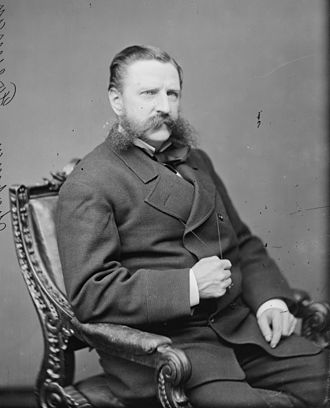Discover Your Roots
SIGN UPDiscover Your Roots
SIGN UPChapman is a gender-neutral English name that originated from the word for "merchant" or "tradesperson." It is a name with historical significance, often associated with individuals who have made notable contributions in various fields. The name Chapman has been borne by distinguished figures such as Chapman L. Anderson, an American politician and Confederate lieutenant colonel, as well as Chapman Freeman, an influential American politician. Additionally, Chapman Way, an accomplished American documentary film director and producer, has also added prestige to the name. With its roots in the English language, the name Chapman reflects a legacy of commerce and trade. This name holds a sense of strength and accomplishment, embodying the characteristics of a skilled merchant and tradesperson.

Emmett Chapman, a jazz guitarist, invented the Chapman Stick in the early 1970s. This electric musical instrument, a member of the guitar family, typically features ten or twelve individually tuned strings and can be used to play bass lines, melody lines, chords, or textures. Unlike the traditional guitar, the Stick is played by tapping or fretting the strings, allowing for the production of multiple notes simultaneously. It is available with passive or active pickup modules and can also trigger synthesizers and send MIDI messages to electronic instruments. The Stick is held using a belt-hook and a shoulder strap, allowing both hands to naturally and comfortably address the fretboard. Notable musicians who have used the Chapman Stick include Alphonso Johnson, Tony Levin, and Amy Grant. The instrument has been featured in influential recordings such as the 1981 King Crimson album "Discipline" and Emmett Chapman's album "Parallel Galaxy." With its unique construction and versatile playing techniques, the Chapman Stick continues to captivate musicians and audiences alike with its innovative approach to music-making.

Chapman Grant (March 27, 1887 – January 5, 1983) was an accomplished American herpetologist, historian, and publisher. Notably, he was the last living grandson of the 18th President of the United States, Ulysses S. Grant. Grant's passion for science was ignited during his childhood spent at the California Academy of Sciences. His academic journey led him to graduate from Williams College in 1910. While serving in the military, he continued his scientific pursuits, and his assignments allowed him to conduct significant studies on herpetofauna, leading to the discovery of several new taxa. Grant's contributions to the field of herpetology were substantial; he established the scientific publication Herpetologica and co-founded the Herpetologists' League, an association of renowned herpetologists in the US. Additionally, he was a publisher of the magazine Scientists Forum. Grant's remarkable legacy is honored by the Major Chapman Grant Hall of Ecology at the San Diego Natural History Museum. He passed away at the age of 95, leaving behind a son, Ulysses S. Grant V, who continued the family's lineage. Grant's extensive body of work, including scientific publications and contributions to herpetology, solidifies his enduring impact on the field of natural sciences.

Henry Chapman Pincher (29 March 1914 – 5 August 2014) was an influential English journalist, historian, and novelist known for his focus on espionage and related matters. Born in Ambala, India, to English parents, his early interest in genetics led him to study zoology and biology at King's College London. Pincher's career began as a physics master at the Liverpool Institute High School for Boys before he joined the Royal Armoured Corps during World War II, where his interest in weaponry, intelligence, and journalism emerged. As a defence correspondent for the Daily Express, he developed a unique investigative journalism style, uncovering Cold War secrets and exposing Soviet spies. His most notable work, "Their Trade is Treachery" (1981), raised suspicions about MI5's former Director General Roger Hollis and sparked controversies. Despite making enemies in high places, Pincher's relentless pursuit of exclusive stories earned him accolades, including Journalist of the Year in 1964 and Reporter of the Decade in 1966. His significant contributions to journalism and espionage literature solidified his legacy as a prominent figure in the field.

Chapman Levy Anderson (March 15, 1845 – April 27, 1924) was an American lawyer and politician who served two terms as a U.S. Representative from Mississippi, from 1887 to 1891. A Confederate Army veteran, he was a member of the Democratic Party. Born near Macon, Mississippi, Anderson attended the common schools in Jackson, Mississippi. He was the son of Thomas Salmond Anderson and Flora E. (Levy) Anderson. During the Civil War, he enlisted in the Confederate States Army and was promoted through the ranks. After studying law and literature at the University of Mississippi, he was admitted to the bar and began practicing in Kosciusko, Mississippi. Anderson also served as mayor of Kosciusko and as a member of the Mississippi House of Representatives. Elected as a Democrat to the Fiftieth and Fifty-first Congresses, he later served as United States district attorney for the northern district of Mississippi. Anderson passed away on April 27, 1924, and was interred in Kosciusko Cemetery. He was an Episcopalian and married Nancy Cunningham Johnson, with whom he had three children.

Chapman Freeman (October 8, 1832 – March 22, 1904) was a prominent Republican figure who served as a member of the U.S. House of Representatives from Pennsylvania. Born in Philadelphia, he displayed academic excellence by graduating as a "distinguished student" from Central High School. Although initially involved in mercantile pursuits, Freeman's career path led him to the United States Navy as an acting assistant paymaster in 1863. Due to health reasons, he resigned in 1864, resuming his legal studies and eventually being admitted to the bar in 1867. Notably, Freeman represented the city of Philadelphia as one of the commissioners of the Centennial in Vienna, Austria. His political journey saw him elected as a Republican to the 44th Congress, where he served two terms, declining renomination in 1878. Chapman Freeman's contributions and achievements have left an indelible mark on the political landscape of his time.
All images displayed on this page are sourced from Wikipedia or Wikimedia Commons.We use these images under their respective Creative Commons or public domain licenses. Wherever applicable, author attributions and license information are provided. If you believe an image is used incorrectly or outside its license terms, please contact us so that we can review and correct the issue.